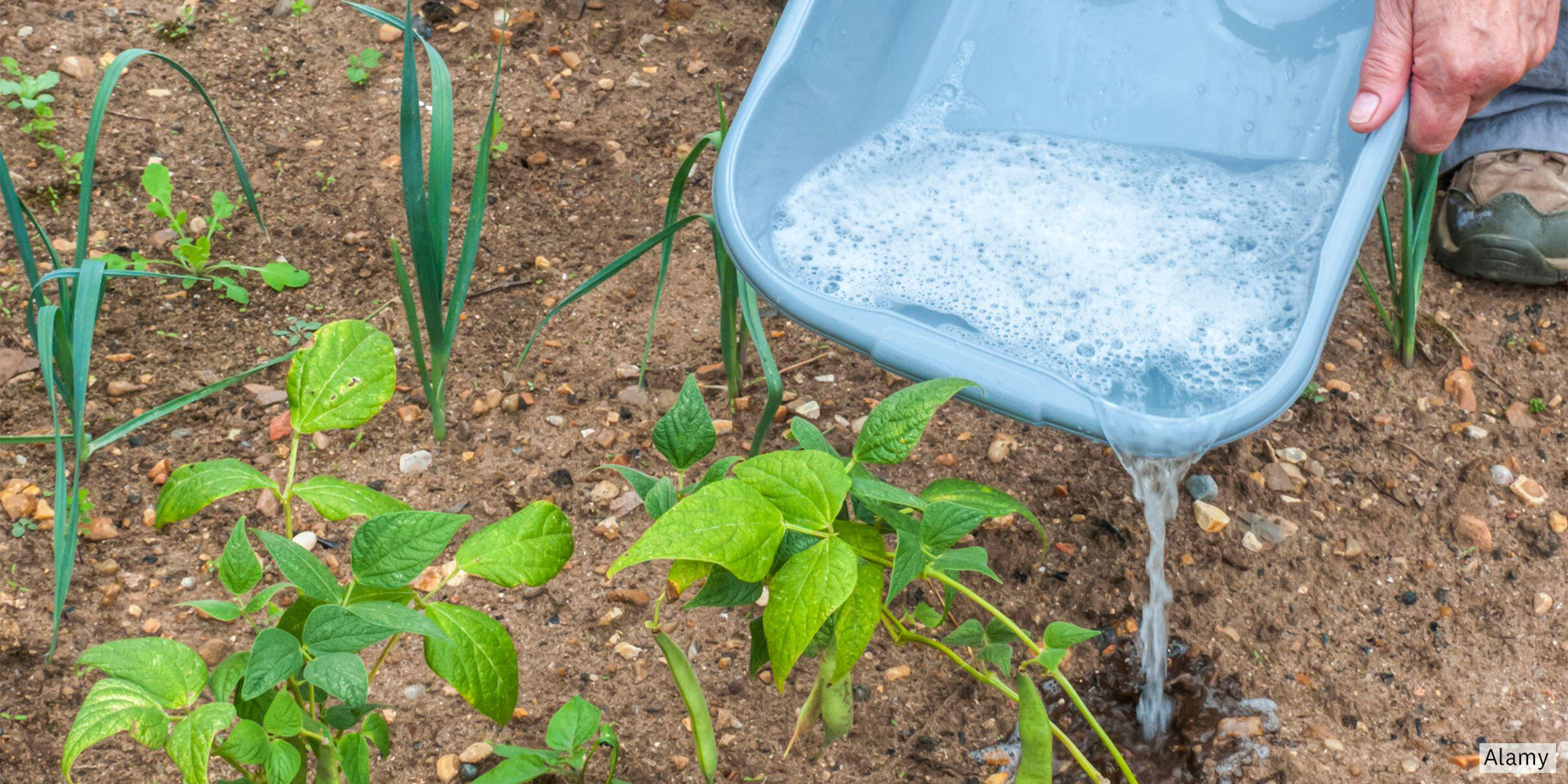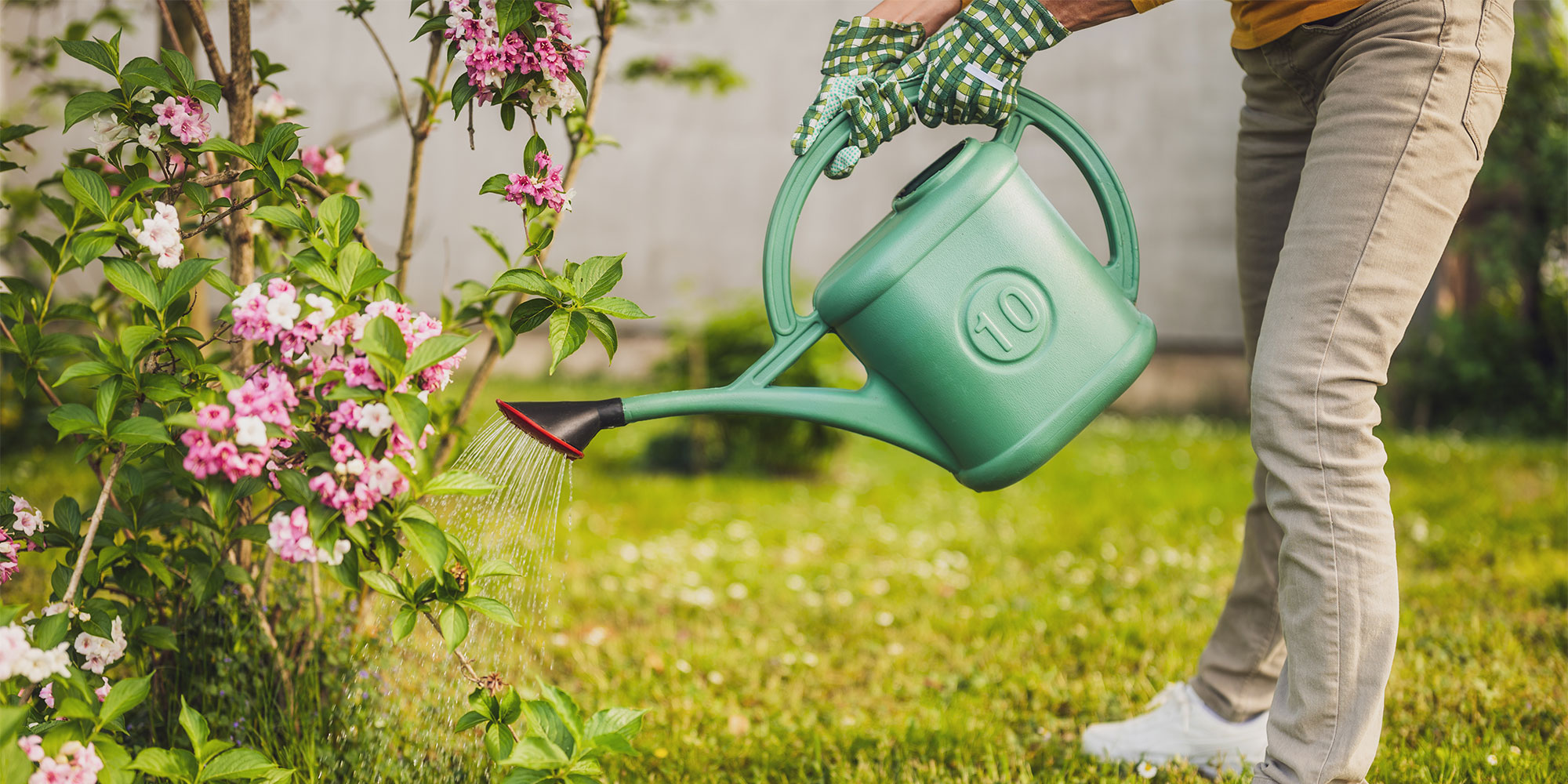
Get a year of super-useful advice
Make your garden better than ever! Get year-round expert tests and advice for only £49
Join Which? GardeningBy clicking a retailer link you consent to third-party cookies that track your onward journey. This enables W? to receive an affiliate commission if you make a purchase, which supports our mission to be the UK's consumer champion.

As we get closer to hotter summer months, using tap water for garden plants can feel wasteful in drought conditions, and stored rainwater is quickly used up, so grey water often suggested as an alternative.
But what exactly is grey water, and how safe is it for you and your plants? Here we take a look at the pros and cons of using it, and give the most current advice on what types use and when.
The term grey water covers all household wastewater produced by washing dishes and clothes, hand-washing and having a bath or shower, but it can be useful to put grey water into two different categories:

Light grey water is the least likely to cause problems when used to water your garden, as shampoos and soaps are usually mild, well diluted and harmless to plants.
You can also use water in which you’ve washed vegetables. Detergents used to wash dishes by hand are safe too, and having small amounts of food in the water has even been found to act as a fertiliser.
If you want to use dark grey water from your washing machine, mix the washing-cycle water with rinsing-cycle water before watering your plants, so that you dilute the detergents. Try to use a low-sodium washing powder without brighteners or water softeners.
Generally, greywater from a home with a sodium-based water softener is not recommended for plant irrigation due to the high sodium content. This can damage soil structure and potentially harm plants and the eco-system.
You should never use ‘black’ water, from toilets or septic tanks, on your garden because of the high risk of contamination.
You should also avoid using water from your dishwasher, as this will contain salts that can scorch your plants.
Water containing bleach or strong cleaning chemicals is also likely to harm plants. Washing-machine detergents with optical brighteners or water softeners contain sodium and boron. These can be harmful to soil and plants, so are best avoided.
The same goes for washing-up water that contains a lot of food particles, oil or grease – all can lead to contamination and even attract vermin.
You should never store grey water for more than 24 hours, as this allows time for bacteria to develop. Don’t use grey water on veg – especially anything you’d eat raw, such as salad plants – as it may contain contaminants.
Dealing with pests in the garden? See our guides on deterring rats, mice, and getting rid of pigeons

Make your garden better than ever! Get year-round expert tests and advice for only £49
Join Which? Gardening
The Royal Horticulture Society has experimented with watering border plants with grey water in the summer. It found that, while most plants were fine being watered this way, some showed signs of salt stress after six weeks.
Other research has shown that it’s best to alternate watering with grey water and mains water, so any salts or contaminants added to the soil are washed through and don’t build up.
As garden containers use a relatively small amount of compost, they’re particularly susceptible to salt damage, so be sure to switch between using mains and grey water when watering pots and hanging baskets.
We've been testing composts for over 30 years to continually find you the best. Head to our guide for the latest results: best compost
It doesn’t make a huge difference whether you use eco cleaning products when collecting grey water, as the quantities are so small.
These products often use less harmful chemicals, such as parabens, phthalates or triclosan. Such chemicals have been linked to environmental damage if they get into water courses, but are unlikely to directly damage plants or soil in small quantities.
Petroleum products can build up and damage soil, so you may want to check ingredient lists on the packaging to avoid them as these vary between products.
Green brands: how sustainable really are they?

There are high-tech ways to collect and treat grey water, but simple solutions are easier to put in place.
Washing-up, veg-washing, shower and hand-washing water are easy to take outside if collected in a bowl.
You could buy a device to syphon or pump bath water to a connected hose. Alternatively, fix a diverter kit to the downpipe directing water to a butt, which would also collect water from a separate shower.
Using water from a washing machine would usually involve moving the drain hose from its pipe to a container large enough to collect the water from a whole washing cycle.
Make watering your plants a breeze with the best garden irrigation systems